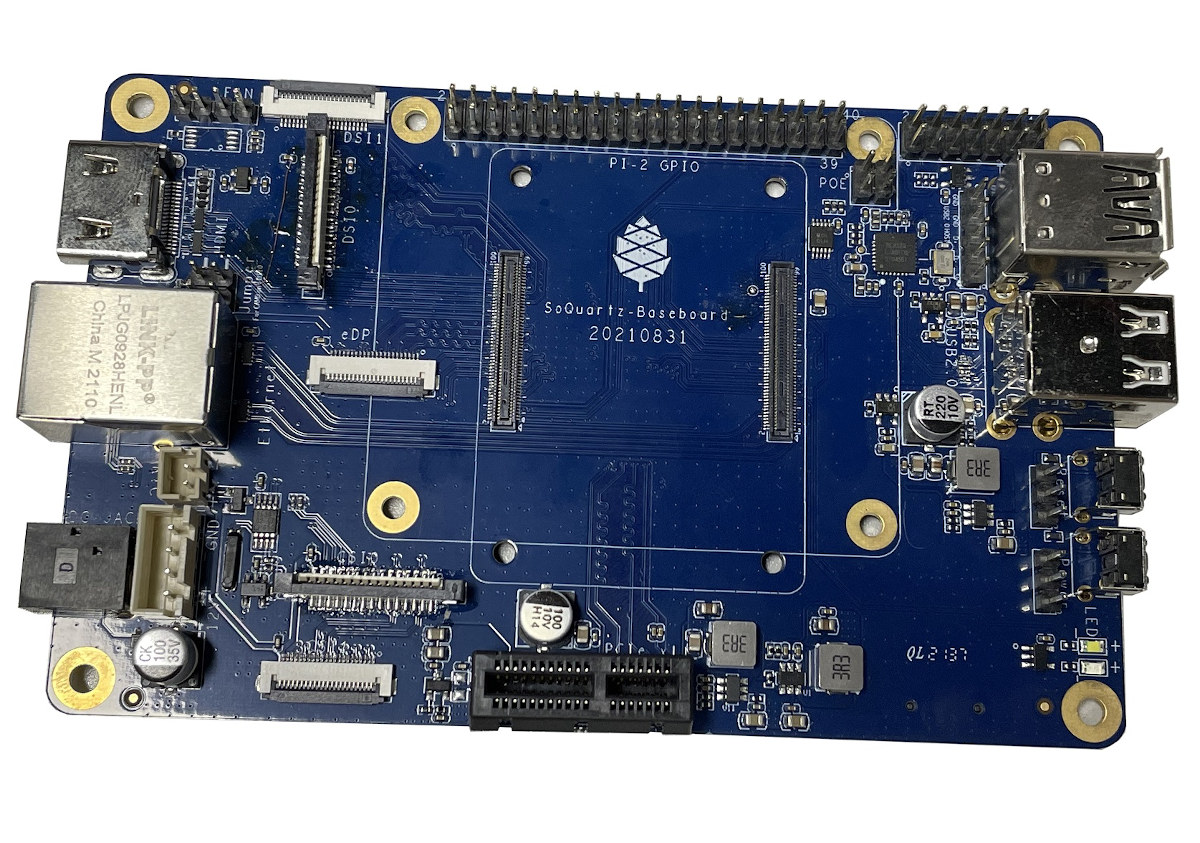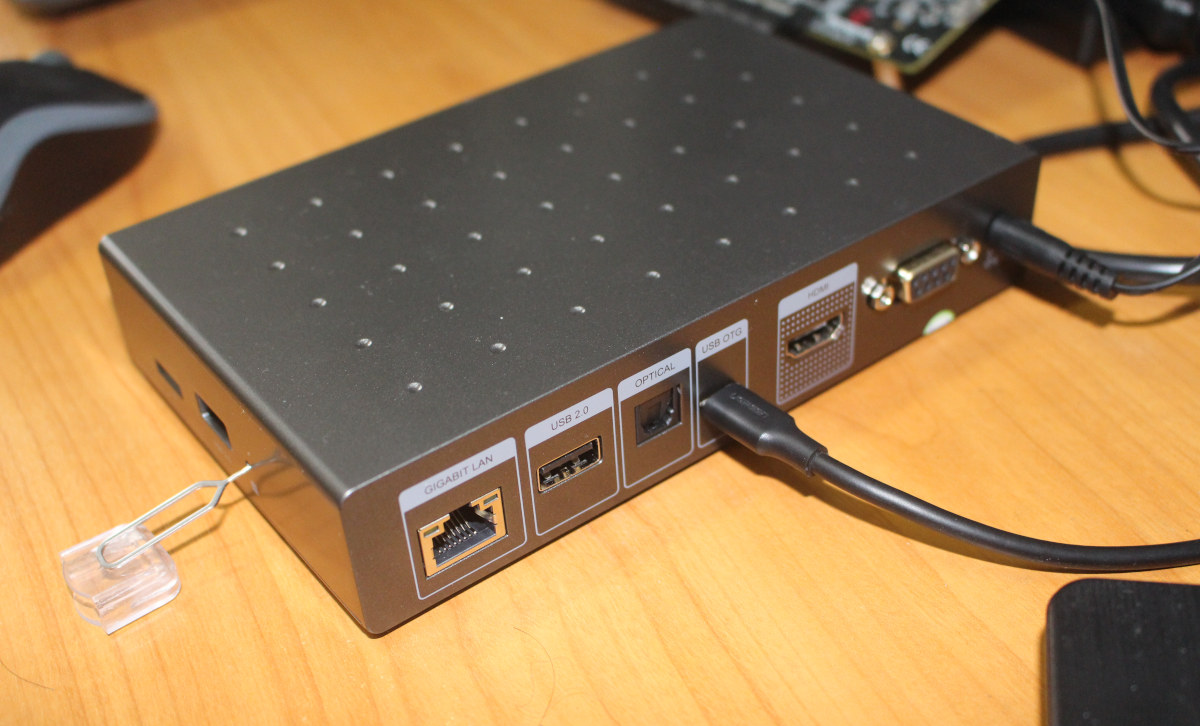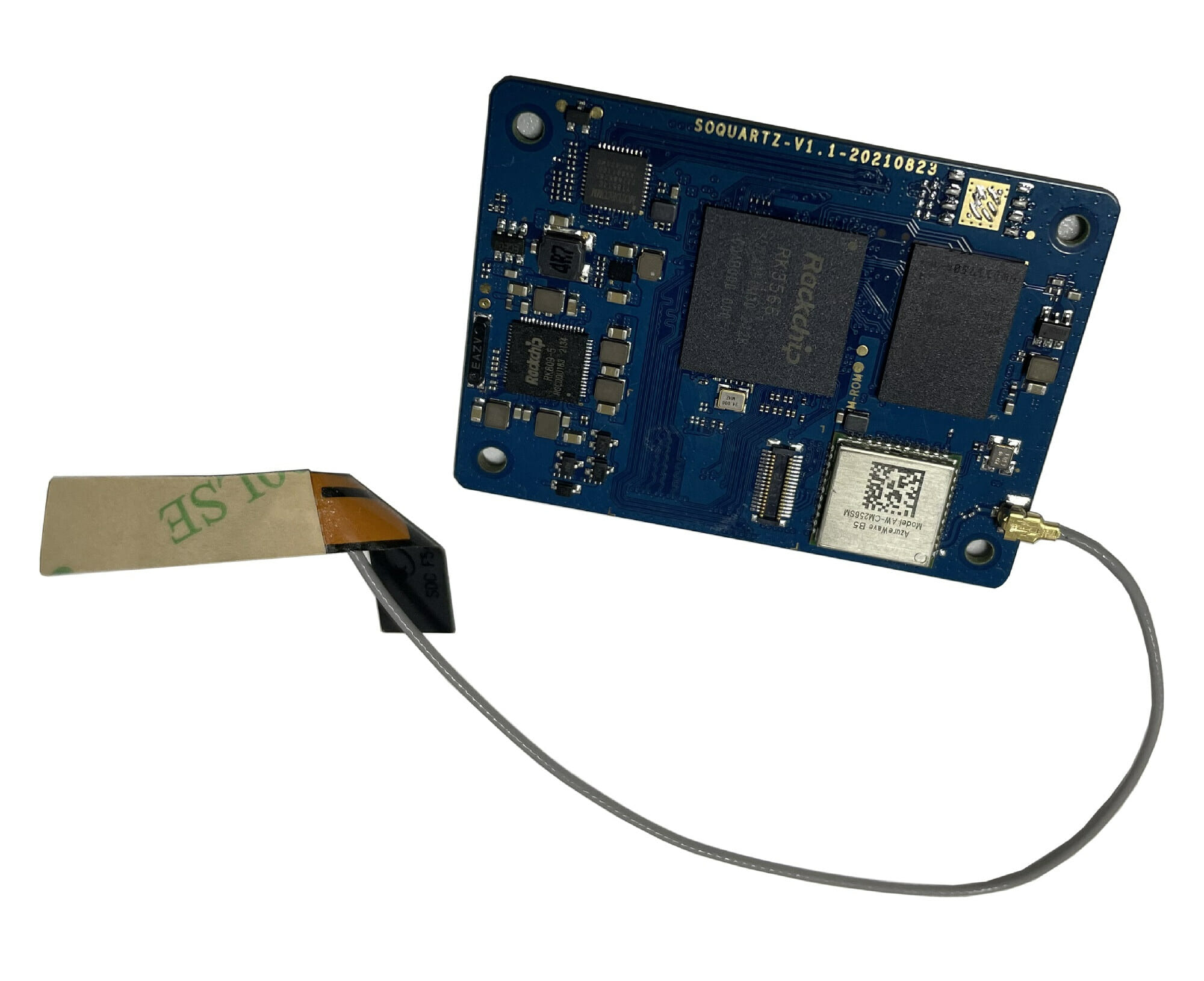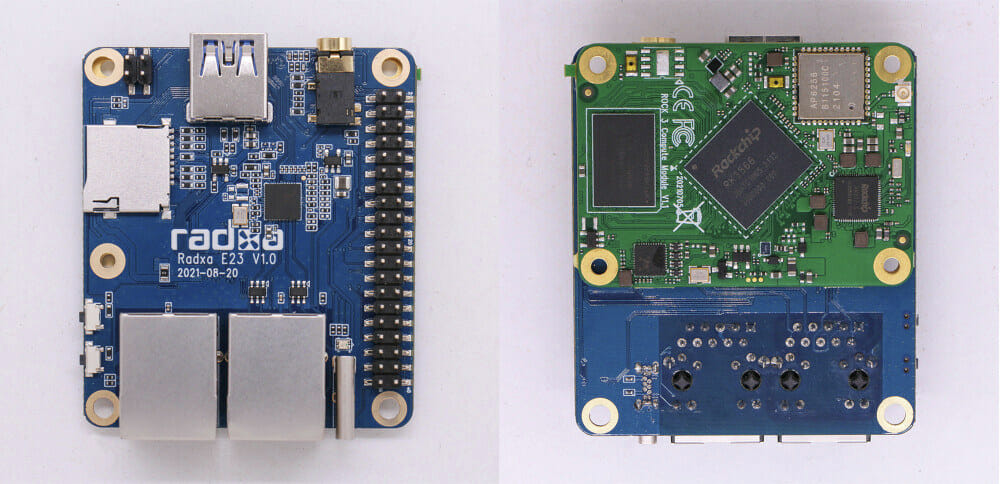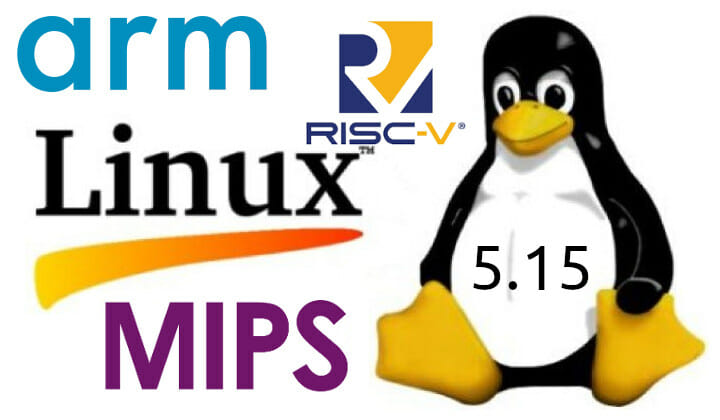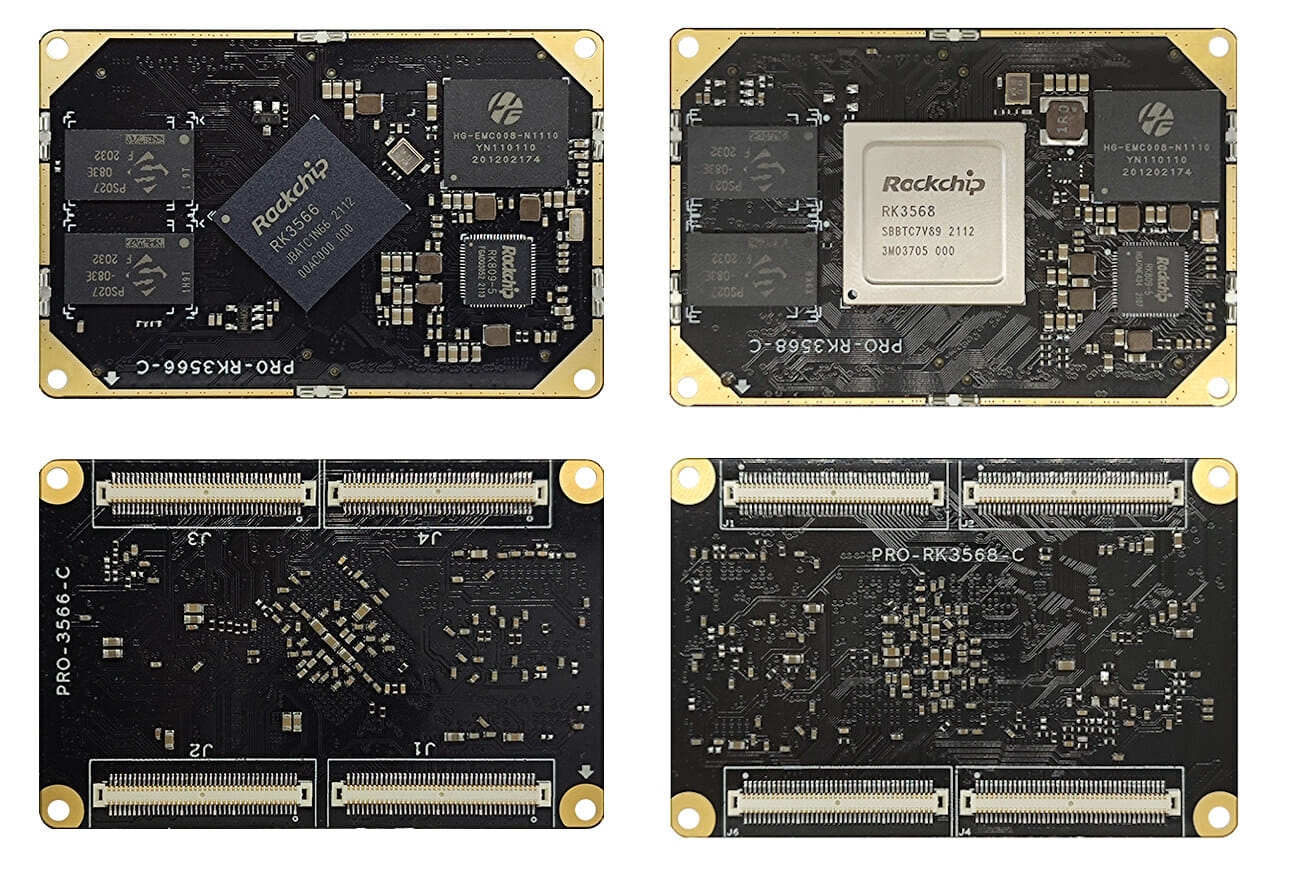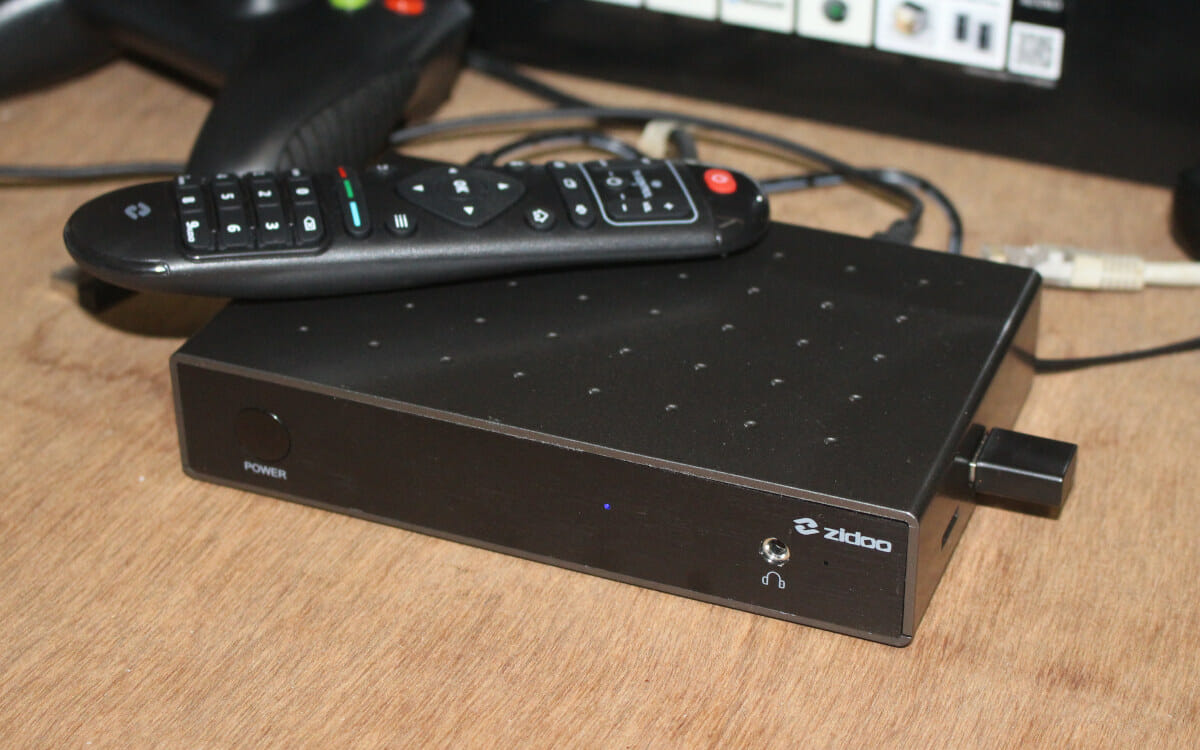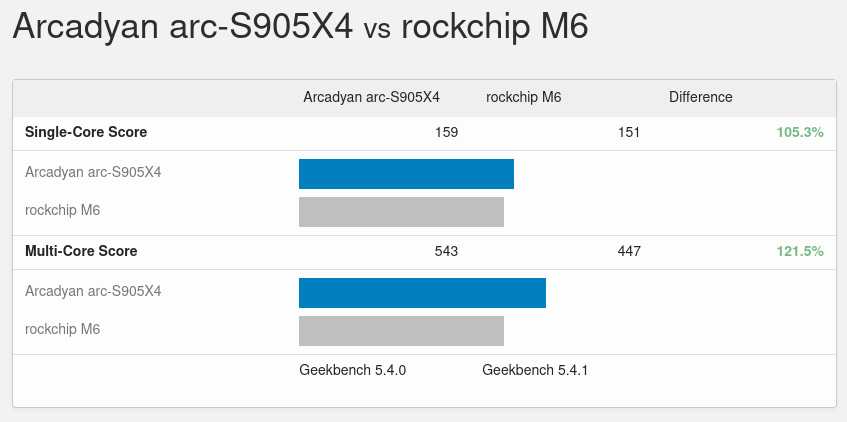While the Rockchip RK3566 powered SOQuartz system-on-module is designed to be compatible with most Raspberry Pi CM4 baseboards, Pine64 is working on three baseboards, which it calls hostboards, for SOQuartz, with the latest introduced in the Pine64’s November update designed to fit in a server rack. That means we now have the “small form factor” hostboard that’s about the size of a business card, the Model-A hostboard with more features and the same dimensions as Pine A64 SBC, and the new Blade hostboard compatible with server racks. Let’s have a look at the three baseboards. Small form factor hostboard Key features: Compatible with SOQuartz SoM with quad-core Cortex-A55 processor with 2GB to 8GB RAM, optional eMMC flash up to 128GB, and optional WiFi 5 and Bluetooth 5.0 module Display Interfaces HDMI 2.0 up to 4Kp60 1x MIPI DSI connector Camera interfaces – 2x MIPI CSI connectors Networking – Gigabit Ethernet […]
How to flash firmware to Rockchip devices in Windows and Linux (2021 Edition)
We’ve written several articles detailing methods to flash firmware to Rockchip devices in Windows or Linux over the years, with tools like RKAndroidTool, RkFlashKit, upgrade_tool, or the open-source rkdeveloptool utility. This is mostly useful to flash another OS or if the device does not boot, as most products will now support OTA firmware updates. But following my review of Zidoo M6 with Android 11, I’ve now got a Linux image for the Rockchip RK3566 mini PC, so let’s revisit the firmware flashing methods in 2021. Zidoo sent me instructions for Windows, but since I’m a Ubuntu user, I flashed the firmware with the Linux tools used by Firefly. The same methods should work for the older processors such as RK3066, RK3288, and RK3399, besides the more recent Rockchip RK3566 and RK3568 processors. How to flash Rockchip firmware in Linux [Important update: If your device comes with both eMMC flash and […]
SOQuartz – Raspberry Pi CM4 compatible Rockchip RK3566 SoM launched for $35 and up
Radxa CM3 Raspberry Pi 4 alternative was just introduced yesterday, but today, Pine64 SOQuartz Compute Module has just become available for $34.99 and up. Pine64 announced the Raspberry Pi Compute Module 4 compatible Rockchip RK3566 system-on-module (SoM) last June, and today the company/community launched three SOQuartz models with a wireless module and equipped with either 2GB, 4GB, or 8GB RAM. SOQuartz system-on-module preliminary specifications: SoC – Rockchip RK3566 quad-core Cortex-A55 processor up to 1.8 GHz with 32-bit RISC-V MCU, Arm Mali-G52 GPU supporting OpenGL ES 1.1/2.0/3.2, OpenCL 2.0, Vulkan 1.1, 0.8 TOPS NPU for AI acceleration System Memory – 2GB to 8GB LPDDR4 Storage Optional 128 Mbit SPI flash Optional eMMC module from 16GB up to 128GB capacity or soldered-on eMMC module (see bottom of board) Wireless module – Azurewave AW-CM256SM WiFi 5 802.11ac & Bluetooth 5.0 wireless module plus an u.FL antenna connector. 2x 100-pin high-density board-to-board connectors with: […]
Radxa CM3 – A drop-in Raspberry Pi CM4 alternative
Radxa CM3 is a system-on-module that offers an alternative to the Raspberry Pi CM4, with the same form factor allowing it to become a drop-in replacement, but switching from a Broadcom BCM2711 processor to a Rockchip RK3566 quad-core Cortex-A55 SoC. Radxa CM3 will work with existing carrier boards for the Raspberry Pi Compute Module 4, albeit some features such as dual HDMI are not available, instead, providing a single HDMI, but the module also offers extra features through an additional 100-pin board-to-board with interfaces such as SATA III and USB 3.0. Let’s compare Radxa CM3 specifications to the ones of Raspberry Pi CM4. Comparing Broadcom BCM2711 quad-core processor and Rockchip RK3566, as the Cortex-A72 may still be faster on some workloads despite the lower frequency, and some other workloads may be dramatically faster on RK3566, for example for those using Armv8 Crypto extensions missing on all Raspberry Pi, which we […]
Linux 5.15 LTS release – Main Changes, Arm, RISC-V and MIPS architectures
Linus Torvalds released Linux 5.15, an LTS version, this past Sunday: It’s been calm, and I have no excuse to add an extra rc, so here we are, with v5.15 pushed out, and the merge window starting tomorrow. Which is going to be a bit inconvenient for me, since I also have some conference travel coming up. But it’s only a couple of days and I’ll have my laptop with me. Sometimes the release timing works out, and sometimes it doesn’t.. Anyway, the last week of 5.15 was mainly networking and gpu fixes, with some random sprinkling of other things (a few btrfs reverts, some kvm updates, minor other fixes here and there – a few architecture fixes, couple of tracing, small driver fixes etc). Full shortlog appended. This release may have started out with some -Werror pain, but it calmed down fairly quickly and on the whole 5.15 was […]
Rockchip RK3566/RK3568 SoM’s feature board-to-board connectors or castellated holes
Rongpin Electronics has designed RK3566 and RK3568 systems-on-modules (SoM) with either board-to-board connectors or castellated holes for direct soldering to the carrier board, which adds competition to the Firefly Core-3568J AI Core Rockchip RK3568 system-on-module offered in a SO-DIMM form factor with an edge connector. The Rongpin Pro-RK3566 and Pro-RK3568 core boards are equipped with four high-speed Hirose connectors, while the RP-RK3568 Core board exposes I/Os through castellated holes around the four sides of the CPU module. Rongpin Pro-RK356x system-on-module & devkit Specifications: SoC – Rockchip RK3566/RK3568 quad-core Cortex-A55 processor @ 2.0 GHz with Arm Mali-G52 2EE GPU with support for OpenGL ES 1.1/2.0/3.2, OpenCL 2.0, Vulkan 1.1, 0.8 TOPS NPU for AI acceleration, 4Kp60 H.265/H.264/VP9 video decoding, and 1080p100 H.265/H.264 video encoding System Memory – 2GB DDR4 (option for 4GB) Storage – 8GB eMMC 5.1 flash (option for 16GB to 128GB) 4x Hirose board-to-board connectors with Storage 1x SATA […]
Zidoo M6 preview with Android 11
I’ve now had more time to play with Zidoo M6 Arm mini PC powered by a Rockchip RK3566 quad-core Cortex-A55 processor. I intended to review the device with Ubuntu, but I misunderstood, and Android 11 was pre-installed on the device. I was also told since this model is mainly for industrial control, I might want to focus on performance and connectors rather than how well all functions work. So this will not be a review, but rather a preview of Zidoo M6, since as we’ll see below there’s still more work do to fix all issues. As an industrial platform. some features like Google Services may not be needed or even desirable. First boot and Settings I’ve connected a USB keyboard for screenshots, MINIX NEO A2 Lite air mouse, an HDMI cable to my 4K TV, and the power supply to get started. I also add two AAA batteries to […]
Rockchip RK3566 Benchmarks in Android 11 (Zidoo M6)
I received Zidoo M6 last month, a mini PC based on Rockchip RK3566 quad-core Cortex-A55 processor. I initially understood it came with Ubuntu Linux, but actually, it came pre-loaded with Android 11, so I’ve decided to run some benchmarks on the RK3566 device to see how it performs compared to other Arm systems Zidoo M6 system info But before running benchmarks, let’s have a look at some system info with CPU-Z CPU-Z has never heard about RK3566, so it detects it as RK3066, but the rest of the information seems correct with a quad-core Cortex-A55 clocked between 400 MHz and 1.8 GHz, an Arm Mali-G52 GPU, 3775KB RAM, and 24.12 GB internal storage from the 32GB flash. The system runs Android 11 on top of Linux 4.19 which will be supported until December 2024. I can set the video output to 4K, but the UI is still limited to 1920×1080 […]

